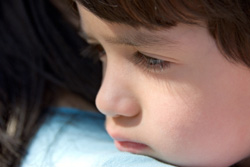Questionnaire for better health in kids
In computerising the questionnaire the project makes it available for administrators of hospitals, epidemiologists and other public health and medicine related fields. The purpose of developing the questionnaire lies in the drive to develop a standardised screening tool. Developed with the purpose of being proactive as well, using the questionnaire can help identify at-risk children. Based on their subjective perception, it is possible to identify any possible health risk and to aid in suggesting the required early preventative measures. Related to affording protection, a proxy measure is also available for care-givers and parents. The questionnaire is suitably designed for children of 8 to 18 years of age and measures a number of dimensions on health-related quality of life issues (HRQOLs). For example, it has five items measuring physical well-being, six items related to psychological well-being and another five items related to self-perception. Other concepts the questionnaire focuses on are school environment, home support and peers as well as questions relating to social acceptance. There are three modules involved in KIDSCREEN each taking about 10-20 minutes to fill in, with scoring providing T-values and percentages stratified for differing countries, regions, age and even gender. KIDSCREEN has existed in paper-based questionnaires but has, through this project's initiative, been made electronic for wider and greater use. Whilst KIDSCREEN has been tested and validated and shown to have overall satisfactory results, further development will continue to refine the product.







